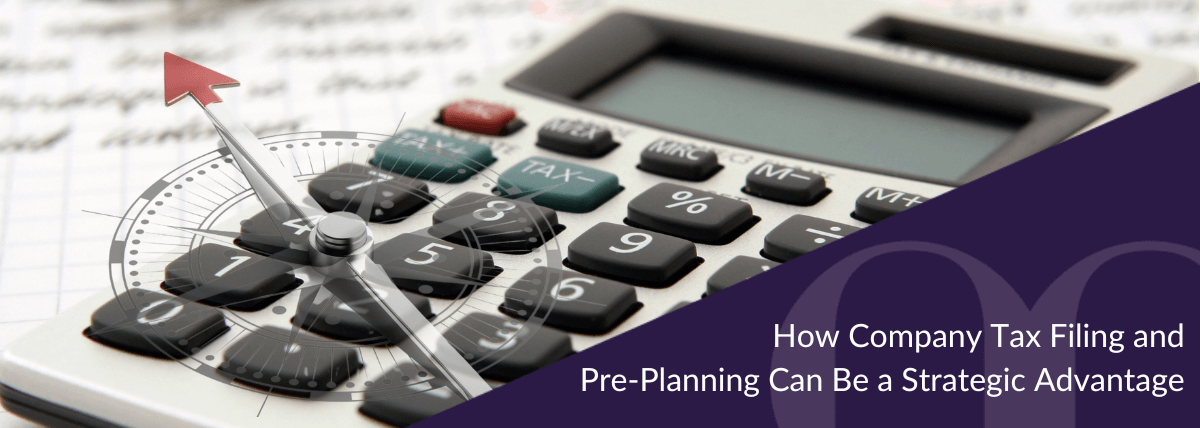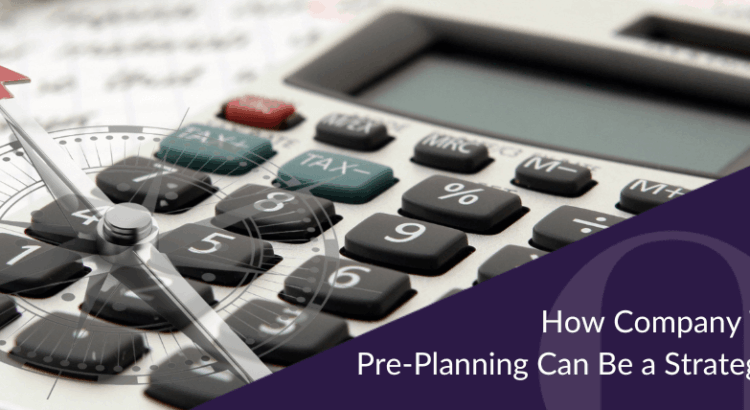For many finance leaders in Singapore, company tax filing is still often treated as a once-a-year compliance exercise after the accounts are closed. It is frequently approached with a “tick-the-box” mindset – gather the financial numbers, submit the tax forms and move on. Typically, this tax filing process is often executed under tight timelines, and with limited integration into the forward-looking financial strategies and broader business planning.
But this mindset is increasingly outdated and in today’s dynamic regulatory and business environment, potentially risky.
In a fast-evolving environment with increasing cross-border scrutiny and digital reporting requirements, waiting until the last minute creates unnecessary risk. Companies miss opportunities to optimise their tax position, improve cash flow management, and leverage available incentives.
“Traditionally, many companies gather financial data only at year-end and then move straight into tax filing,” explains Eunice Hooi, Managing Director, Asia, Accounting and Tax at BoardRoom Group. “It’s a reactive approach – a box-ticking exercise that prioritises meeting deadlines over strategic value. In today’s fast-evolving business environment, waiting until the last minute isn’t sustainable. The regulatory landscape is growing more complex, digital reporting requirements are expanding, and multinational operations face heightened scrutiny. By not engaging with tax planning proactively, companies risk unnecessary exposure to penalties, inefficiencies, and missed opportunities for tax optimisation.”
In reality, company tax filing – when approached strategically – is far more than a statutory obligation. It provides finance and tax leaders a lens to uncover operational efficiencies, anticipate and mitigate risks, and gain clearer, more actionable insights into a company’s overall financial health.
“The biggest shift finance and tax leaders need to make is adopting a forward-looking mindset,” Eunice continues. “Tax should be embedded into the broader business planning process, not treated as a standalone compliance function. When tax considerations are integrated into budgeting, forecasting, capital allocation, and investment decisions, they become a tool for strategic decision-making rather than merely a compliance obligation. Companies that recognise this shift can align tax management with growth initiatives, risk management, and long-term financial planning.”
This shift is particularly critical against the backdrop of rising regulatory complexity, digital reporting obligations and increasing scrutiny across jurisdictions, particularly for multinational companies. The annual tax return submission has evolved into a business-critical touchpoint that goes beyond end-of-year execution — now requiring strategic attention, continuous oversight and proactive cross-functional alignment between finance/tax, operations and executive management.
What Is Company Tax Filing in Singapore and Why It’s More Than Just a Box-Tick
In Singapore, corporate tax filing is administrated by the Inland Revenue Authority of Singapore (IRAS). While the procedural steps for tax submission may seem routine, its implications to tax submission extend far beyond mere compliance. Poorly executed tax submission can expose companies to penalties, audits and reputational risk. Conversely, strategically managed tax submission can strengthen governance, support cash flow management, and enhance long-term financial planning.
At its core, company tax filing in Singapore includes two key milestones:
- Estimated Chargeable Income (ECI): Companies must complete their ECI filing within three months of the end of their financial year, unless exempted.
- Annual Income Tax Return: To be submitted by 30 November of the Year of Assessment.
- Form C for companies with revenue exceeding S$5 million or those claiming specific reliefs (e.g., group relief, foreign tax credits)
- Form C-S for companies with annual revenue of S$5 million or below
- Form C-S (Lite) for those with revenue of S$200,000 or below
Key Corporate Tax Filing Dates for Companies in Singapore
| Filing Requirement | Description | Deadline |
|---|---|---|
| ECI Filing | Declaration of estimated taxable income | Within 3 months after Financial Year End (FYE) |
| Form C / Form C-S Submission | Annual corporate income tax return | 30 November (Year of Assessment) |
| Final Tax Payment | Based on IRAS-issued Notice of Assessment (NOA) | As per NOA due date |
The Hidden Risks of Treating Corporate Tax Filing as a Compliance Checklist
For smaller, single-entity businesses with stable financials, tax filing may be relatively straightforward. However, for businesses with regional operations, multiple entities, intercompany transactions, or ongoing restructuring, the complexity increases significantly.
“In Singapore, there’s no consolidated group tax reporting. Tax compliance is inherently country-specific and entity-specific. Each entity is required to prepare and file its tax returns, well supported by detailed tax computations and defensible transfer pricing documentation,” Eunice explains.
Moreover, Singapore’s compliance landscape is tightening. Real-time reporting expectations, cross-border data exchanges under the Organisation for Economic Co-operation and Development (OECD) frameworks, and greater regulatory cooperation across the Association of Southeast Asian Nations (ASEAN) mean that even minor errors or inconsistencies can lead to costly consequences.
“Without proactive tax planning, companies may end up with inconsistent tax reporting across jurisdictions, gaps in documentation, and heightened exposure to tax audits,” Eunice emphasises.
A reactive filing approach also limits flexibility. Companies that embed strategic tax planning into their governance frameworks are better positioned to capitalise on incentive schemes, manage risk and support long-term growth plans.
In short, the filing of corporate tax returns is a strategic opportunity for finance leaders to bring tax into the broader business conversation.
From Compliance to Competitive Advantage: Re-thinking Your Company Tax Filing Strategy
Too often, corporate tax filing in Singapore is treated as a cost of doing business – a legal requirement that sits outside the strategic focus of the finance function. However, for companies willing to rethink their approach, tax filing can become a powerful lever for insight, control, and competitive differentiation.
Unlocking Insight and Efficiency
When tax filing is integrated into a company’s broader planning process, it provides real-time visibility into financial performance and risk exposure. A well-structured approach can uncover:
- Eligible tax deductions and incentives
- Patterns in cash flow and expense categorisation
- Forecastable liabilities for more accurate budgeting
“Strategic tax planning isn’t just about reducing the tax bill, it’s about minimising the risk of oversight, ensuring accuracy, and embedding both financial and tax insights into decision-making,” Eunice elaborates. “And when tax data feeds into cashflow, forecast dividend planning, or business expansion strategies, this shifts the tax function from being reactive to being proactive.”
Strengthening Cross-Border Governance
Multinational companies operating across Asia face a particularly complex tax compliance environment. Differences in corporate tax filing timelines, documentation standards and regulatory scrutiny can leave even well-resourced finance teams exposed.
That’s where proactive tax filing plays a critical role.
“With the rise of real-time tax reporting, cross-border data exchange, and frameworks like BEPS 2.0, any inconsistency between entities can trigger audits or disputes. Companies must harmonise their tax approach across the group – this requires proactive tax planning, not reactive tax fixes,” Eunice explains. “Treating tax filing as a strategic lever enables companies to shift from compliance-driven operations to insight-driven decision-making, creating a clear competitive advantage in a complex business landscape.”
Companies that embed tax planning into operational and structural decisions are better equipped to manage intercompany pricing, avoid double taxation and maintain audit readiness across jurisdictions.
Supporting Business Growth Objectives
Strategic tax planning can also accelerate business growth by:
- Ensuring clean financial records for mergers and acquisitions or joint ventures
- Making it easier to access and comply with tax incentives
- Streamlining legal entity setup and restructuring
- Improving stakeholder confidence through strong governance
“A proactive tax strategy can influence business outcomes. With strategic tax planning, businesses can better plan capital allocation, optimise funding requirements, and anticipate regulatory impacts before they arise,” Eunice emphasises.
This becomes particularly relevant when a company is preparing for investment, expansion, M&A or public listing – all scenarios where historical tax performance and compliance posture come under scrutiny.
Why Work with a Specialist Tax Partner
For many companies, especially those with complex corporate structures, delivering audit-ready, future-focused tax filing in-house is challenging. It requires not only deep technical knowledge but also scalable processes and the ability to keep pace with regulatory change.
“This is where BoardRoom adds real value. We bring a regional tax team with local expertise, supported by technology that ensures consistency and compliance. That allows clients to focus on their business, while we handle the risk,” Eunice highlights. “This combination ensures that tax filings are accurate, statutory tax deadlines are met, and regulatory tax changes are immediately reflected in the tax process. By outsourcing the complex and high-risk aspects of tax management, companies free up internal resources to focus on core operations, growth initiatives, and strategic decision-making.”
BoardRoom’s approach includes:
- Tech-enabled corporate tax filing with automation and compliance alerts
- Centralised dashboards for real-time visibility across markets
- Advisory services that align tax with business strategy
- Transfer pricing and cross-border planning to reduce audit exposure
By moving company tax filing from a year-end chore to a continuous, insight-rich process, finance leaders can position their companies to grow with confidence and control.

Make Company Tax Filing Work for Your Business, Not Against It
Tax filing can be a strategic opportunity, and for businesses with complex corporate structures, evolving compliance burdens or regional operations, shifting from a reactive to a proactive model is key.
“Most businesses come to BoardRoom thinking tax services are just about meeting statutory tax deadlines. But we help them rethink tax function – as a lever for growth, a shield against risk, and a source of financial insight. Companies that treat tax as an analytical instrument can make better decisions around timing of expenditures, capital investment, and market expansion, while also identifying opportunities for deductions, credits, and incentives that would otherwise be overlooked,” says Eunice.
Eunice adds, “When companies shift from reactive tax filing to proactive tax planning, they gain better visibility and more control over their business. Tax becomes part of the solution, not just a compliance problem. For example, early identification of tax exposures allows management to implement mitigation strategies, allocate resources more efficiently, and avoid last-minute pressures that can lead to errors or penalties.”
With the right processes, tools and expert guidance, income tax filing for companies can go from administrative overhead to strategic enabler. By rethinking how they file company tax returns, companies can unlock untapped value and ensure long-term sustainability.
“In traditional workflows, tax teams work in isolation. When tax data is fragmented, delayed, or inconsistent, tax becomes a rear-view mirror rather than a forward-looking lens. As a result, tax becomes historical reporting rather than future-focused insight,” Eunice explains. “Finance and tax leaders may miss opportunities for tax optimisation, and tax compliance risk increases. Integrating tax with operational, budgeting, and forecasting data allows teams to identify trends, assess risk in real time, and make informed decisions that drive business growth.”
This transformation requires more than just intent; it calls for:
- Integrated processes that connect tax to budgeting, forecasting, and operations
- Technology-enabled platforms that simplify e-filing corporate tax returns and boost reporting accuracy
- Specialist tax advisory that ensures every opportunity for optimisation is identified and validated
For complex organisations, particularly those managing multiple entities or planning growth through mergers and acquisitions, strategic filing of company tax returns is critical. The difference between a reactive and proactive approach can be measured in both cost savings and business agility.
Eunice elaborates, “We have supported clients in maximising tax deductions on IP and R&D expenditure, navigating corporate amalgamation projects, and structuring cross-border expansions efficiently. For instance, one client obtained significant tax deduction on IPR claim submission. Another client successfully executed a corporate consolidation with minimal tax leakage. These examples demonstrate how proactive, strategic tax planning translates into tangible business benefits.”
For companies with complex footprints, manual processes and siloed teams only add friction. Engaging a trusted tax partner like BoardRoom provides access to regional expertise, smart technology, and advisory insights that align tax with business goals.
Turn Tax into a Strategic Advantage with BoardRoom
If your current approach to corporate tax returns still feels like box-ticking, it’s time to reframe. Partnering with an expert like BoardRoom means more than timely company tax filing. It means strategic insights, tax-efficient structures and greater business confidence.
Get in touch with BoardRoom’s tax specialists today to prepare a smarter, more strategic Annual Return filing plan for 2025.


